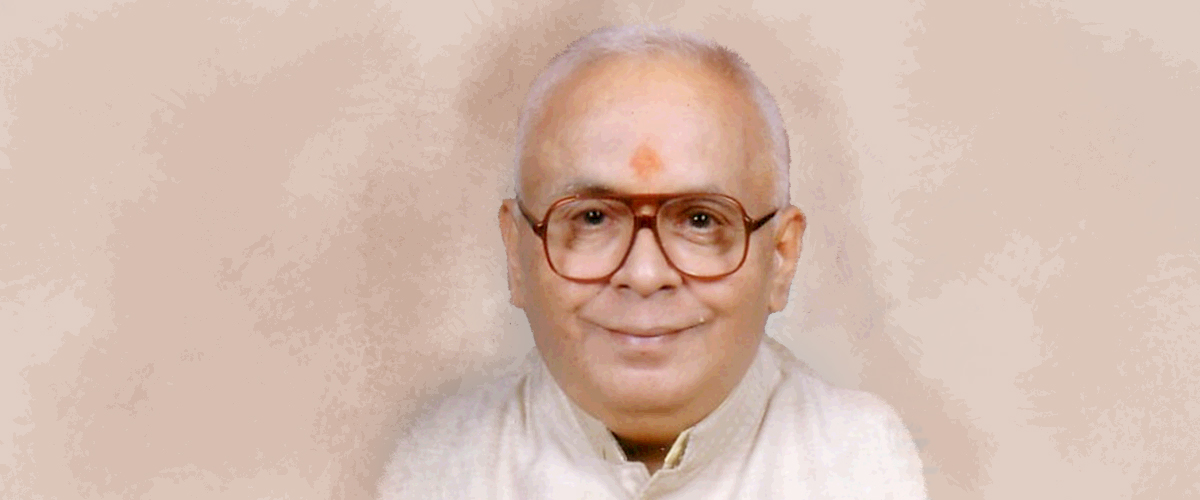Seven decades after Independence, a nation, which is more a continent than a country, continues to be in evolution, struggling to ensure basics to its billion-plus people.
It should not have taken this long in a functional democracy, only if its legislature and its executive were sensible enough to implement the constitutional provisions of equal freedom and opportunities to people.
However, India’s face has changed significantly after embarking on the road to economic liberalisation three decades ago. It becomes important, therefore, to inquire why the Indian economy was stilted before 1991, even though the answers are now well known: the institutional framework premised to deliver the fruits of democracy were not only utterly weak, but often hand in gloves with reactionaries, masquerading as progressives.
Yet, the landscape was not bereft of outstanding scholars, thinkers, economists and civil servants – like Venkataraman Sundaram – who warned against the pitfalls of dictatorship and narrow economic determinism.
In his career as a civil servant, Sundaram strove for improvements in government delivery systems. He wore many hats with equal proficiency – scholar, economist, writer, author and a fearless journalist. A multi-dimensional personality, his contribution to public policy, historical analysis, poetry and a collector of rare books, sets him apart from the crowd.
He strongly believed that without unfettered “civil liberty, individual freedom and political democracy” India cannot achieve economic prosperity.
Sundaram served as civil servant in Tamil Nadu for 29 years. He was Principal Secretary to the Government of Tamil Nadu before he opted for voluntary retirement from the Indian Administrative Service (IAS) in 1994, aged 51.
He quit in disgust and said it in as many words. “I quit in disgust… I got fed up with the corrupt system and politicians around me who fail to learn anything either from history or the present.” Both in the government and outside it, Sundaram was known for his independence and courage of conviction.
In one of his more famous orations delivered in 1982 as Director of the Anna Institute of Management, Chennai, Sundaram noted that “When the public sits in judgment on any public servant, they are bound to ask four questions. Was he a man of judgment? Was he a man of vision? Was he a man of courage? Was he a man of integrity?” All questions remain highly relevant even today.
Sundaram was a crusader against the denuding of Tamil Nadu’s natural resources and beach minerals. He believed that being neutral in public was tantamount to committing suicide. In the process, he deliberately veered towards Right Wing analysis, of course, well-backed and supported by data.
Sundaram was born on August 28, 1942, at Trichy in Tamil Nadu, and did his schooling in Shimla and New Delhi. He completed his school education at the Madrasi Higher Secondary School, New Delhi in 1958 and studied Tamil from eminent writer and teacher Dr ‘Indira’ Parthasarathy. He graduated in Economics from St. Stephen’s College, Delhi, in 1961 and finished post-graduation in Economics with specialisation in Industrial Economics from Delhi University in 1963.
Between 1963-1965, he was lecturer in Economics at Delhi University’s Dyal Singh College. In 1965, aged 23, he cleared the Indian Administrative Service (IAS), moving to Madras (now Chennai) after being allotted the Tamil Nadu cadre. He served with distinction in several important positions in the state government from 1966 to 1994.
Posted as Collector in the southern districts of Tamil Nadu, Sundaram was instrumental in developing the Tuticorin Port Trust as Chairman, putting it on the Maritime Map of South East Asia. He played a major role in bringing the branded sunflower oil Sunola as Managing Director of the Tamil Nadu Agro-Industries Corporation Ltd. In record time, he was instrumental in completing the development of Tirupur Industrial Complex for export of textiles and garments, in 1991-92.
Sundaram excelled in many roles: Commissioner and Secretary to Government in the Department of Institutional Finance, Rural Development, Food and Consumer Protection, Public Works Department (PWD) and Personnel and Administrative Reforms. As Secretary PWD, he played a big part in the acceleration of privatisation of the power sector.
Post-retirement, he held many responsible positions, both in the public and private sectors. He was Administrator of the World Bank-assisted National Highways projects. For two years, he was Secretary-General of the Hindustan Chamber of Commerce, Chennai.
A prolific author, Sundaram wrote several books including Growth with Equity (1987), Essays and Reviews (1993), District Administration (1993), Essays in Welfare Administration (1993), Rama Setu—Historical Facts and Political Fiction (2007), Tamil Scholars and Savants (2011), and Elegies on Padma (2012), to mention only a few.
After quitting the civil service, he was Associate Editor of The News Today (a daily in English) and Malai Sudar (a Tamil daily) from 2005-2010 and wrote innumerable scholarly articles in English in their columns.
To judge him as a Hindutva apologist by reading a few of his articles will be misleading; only a thorough reading of his scholarly treatises would help appreciate his position on different subjects.
Sundaram vehemently criticised India’s first Prime Minister for implementing policies through centralised planning. He stated: “…centralised planning process introduced by Jawaharlal Nehru in 1950, with experts like Mahalanobis determining the targets and allocation of resources cannot be an effective model today.”
He was scathing in his observations. “…The invasion of Nehruvian secularism which started on August 15, 1947, and is still continuing unabated and unchallenged, clothed in the aura of official authority, now institutionalised … It is because of this politically motivated and criminally perpetrated hiatus between a false nation and a truly blood-sucking State that there is a continuous proliferation of selfishness, corruption, and moral degradation in all walks of our national life today. The national society has been alienated from the State and the national will to face problems has all but vanished.”
However, Sundaram agreed with Nehru’s frustrations following reservations to weaker sections of the society without ensuring equal opportunities to improve their living standards through high quality of education and healthcare services.
In 2006, he wrote an obituary on the world’s leading free market economist, Milton Friedman, covering his life and major works. “Friedman effectively proved that government is the biggest source of instability in the economy. All this he proved in his most important single work on economics called “A Monetary History of the United States 1867 – 1960”. Adding, he went on: “Many champions of liberty have generally done well to achieve significant impact on a single area of public policy. But Friedman has had a significant impact on many public policies”
Like Friedman, Sundaram noted that “Wherever the private market was largely suppressed and the State undertook to control in detail the economic activity of its citizens, there the ordinary man was in political fetters, had a low standard of living, and was largely bereft of any conception of controlling his own destiny.”
An indefatigable proponent of nationalism with free-market economics and against the ideas of communism and socialism, he noted, pithily: “Rajaji spoke against the ‘Licence-Permit-Control-Quota Raj’ in the 1950s and 1960s. If he had been in our midst today, he would have spoken against the ‘Licence-Permit-Control-Quota Raj’ created by our politicians in the field of professional, higher and university education.”
This former civil servant was greatly influenced by the writings of the political scientists, Hans J Morgenthau (1904-1980), Winston Churchill, as well as writings of leading libertarian scholars and statesmen like V S Srinivasa Sastri and C Rajagoplachari. “History is like a flickering lamp while we stumble along the trail of the past trying to reconstruct its scenes. The past fills us with wonder. I get excited when I read about the renaissance period,” he noted.
Sundaram was convinced that Indian history taught in schools are highly polluted, clouded by authors’ biased views.
Sundaram was a distinguished institution-builder. He was Founder Chairman of Sir William Jones Institute of Indological Studies as well as the Sri Padma Sundaram Foundation, which works to improve technology-enabled learning for the poor.
Sundaram passed away on November 7, 2014, aged 72 in Chennai. Till the end, he never compromised on his principles.
IndianLiberals.in is an online library of all Indian liberal writings, lectures and other materials in English and other Indian regional languages. The material that has been collected so far contains liberal commentary dating from the early 19th century till the present. The portal helps preserve an often unknown but very rich Indian liberal tradition and explain the relevance of the writings in today’s context.
Read more: How inclusive is the Smart Cities Mission
Post Disclaimer
The opinions expressed in this essay are those of the authors. They do not purport to reflect the opinions or views of CCS.






